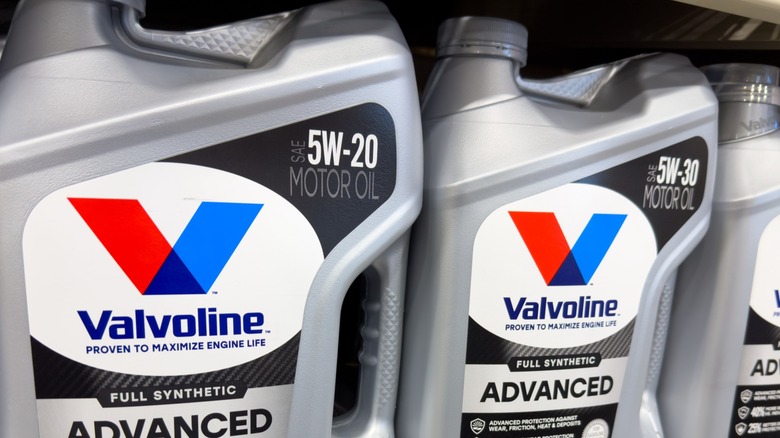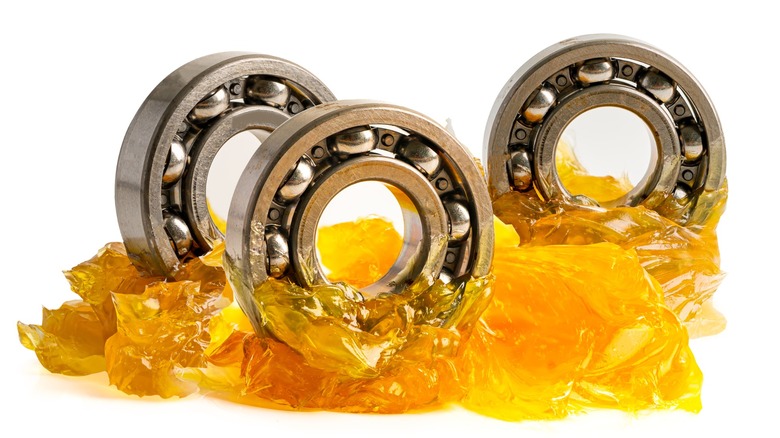Can You Use 5W-30 Engine Oil Instead Of 5W-20?
While there are other nuances to motor oil classifications that need to be understood before changing or topping off the oil in your car's engine, one of the first things to address is the viscosity, or weight, of the oil your engine requires. In the late 1970s, when I first started working on cars and doing engine maintenance, 10W-30 was about the only multi-viscosity oil on the market.
Today, all of the best motor oil brands make a variety of multi-viscosity motor oils to satisfy the requirements specified by automakers. It is always best to consult with your vehicle's owner's manual for the manufacturer's requirements before adding any fluids to your car. However, if your car normally requires the use of 5W-20, it's dangerously low on oil, the only motor oil you have available is 5W-30, and you must drive it, it's better to add the 5W-30 than it is to drive your car with extremely low engine oil. However, I would advise against making a habit of putting the wrong type of oil in your car.
Why is using the wrong viscosity engine oil bad?
First, if you don't know what viscosity is, don't feel bad since it's a seldom used word for a specific attribute applied to liquids. Viscosity is a measurement of a liquid's tendency to stick to surfaces and the rate at which it flows. Imagine the difference between dipping your finger in a container of water versus a container of pancake batter. Pancake batter is thicker and has higher viscosity, a condition we'd describe as being more viscous than water.
Way back in the day, engine oils were only available in straight-weight formulas such as 20W, 30W, and 40W. If you only drove your car in moderate climates that experienced minor ambient temperature swings you could use the same weight, or viscosity, oil all year. In the Midwest United States, people would often use more viscous motor oils, like 40W, in the summertime to protect against high temperatures breaking down the oil. In the winter they'd have to change to a lighter weight oil, such as 20W, to ensure the oil could flow rapidly to lubricate engine components before any damage occurred during cold starts.
Multi-viscosity oils (5W-20 and 5W-30) are formulated to flow faster when cold while still providing high-temperature protection. However, the 5W-30 oil is more viscous than 5W-20 at the engine's operating temperature. The higher viscosity makes it harder for the engine's oil pump to distribute oil to precision-fitting components and could lead to premature wear.

